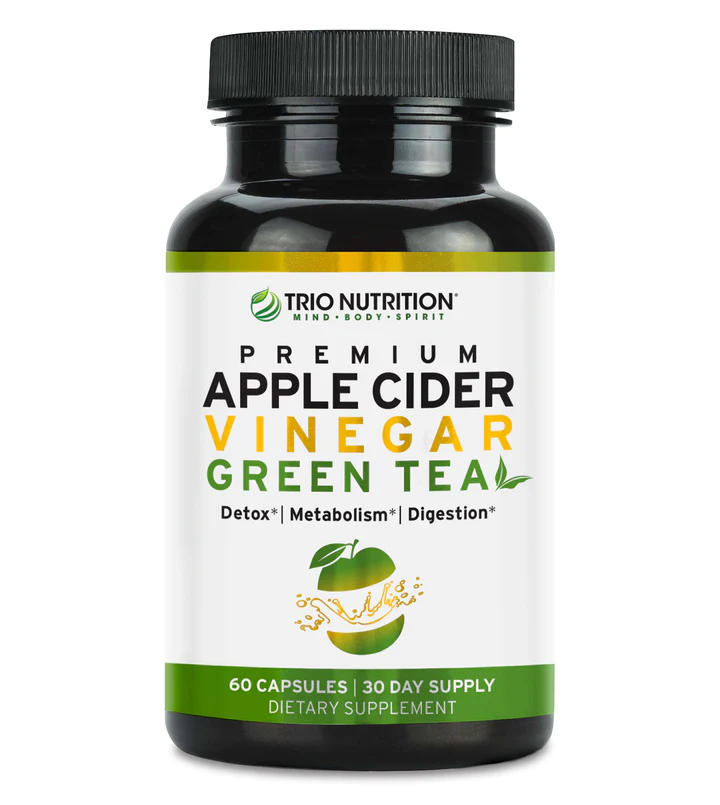Green Tea And Apple Cider Vinegar Benefits

The wellness world is abuzz with talk of natural remedies, and two standouts consistently garner attention: green tea and apple cider vinegar (ACV). Both have long histories in traditional medicine and are now subjects of scientific inquiry, with proponents touting a range of potential health benefits. But what does the evidence really say?
While anecdotal claims abound, it's essential to examine the scientifically-backed benefits and potential risks associated with incorporating green tea and ACV into one's diet. This article will delve into the existing research, separating fact from fiction to provide a balanced perspective on these popular health aids. Understanding the nuances is crucial for individuals seeking to make informed decisions about their well-being.
Green Tea: A Powerful Antioxidant
Green tea, derived from the Camellia sinensis plant, has been consumed for centuries, particularly in Asian cultures. Its popularity stems from its rich antioxidant content, especially epigallocatechin gallate (EGCG), a type of catechin.
Numerous studies have explored the potential health benefits of green tea consumption. The National Institutes of Health (NIH) have funded research on its effects on various health conditions.
Potential Benefits
One of the most well-documented benefits is its potential for weight management. Some studies suggest that EGCG can boost metabolism and increase fat burning, although results are often modest and may vary depending on individual factors.
Green tea has also been linked to improved cardiovascular health. Research suggests it may help lower LDL (bad) cholesterol and blood pressure, reducing the risk of heart disease.
Furthermore, some studies indicate a potential role in cancer prevention. The antioxidant properties of green tea may help protect cells from damage that can lead to cancer, although more research is needed to confirm these findings.
Beyond physical health, green tea has been studied for its effects on cognitive function. Some research suggests that it can improve alertness, focus, and memory, possibly due to the combined effects of caffeine and L-theanine.
Considerations and Risks
Despite its potential benefits, green tea is not without its considerations. Its caffeine content can cause anxiety, insomnia, and jitteriness in some individuals.
Individuals with caffeine sensitivity should exercise caution. Additionally, green tea can interact with certain medications, so it's important to consult with a healthcare professional before incorporating it into your routine, especially if you are taking medication.
Apple Cider Vinegar: More Than Just a Salad Dressing
Apple cider vinegar (ACV) is made by fermenting apple juice, creating acetic acid, which is responsible for its characteristic sour taste and many of its purported health benefits. While often used in cooking and salad dressings, ACV has also gained popularity as a natural remedy.
The research on ACV is still relatively limited compared to green tea, but some studies have shown promising results. Many claims are anecdotal and not yet supported by robust scientific evidence.
Potential Benefits
One of the most studied benefits of ACV is its potential to improve blood sugar control. Some studies suggest that consuming ACV before meals can help lower blood sugar levels, particularly in individuals with type 2 diabetes.
ACV has also been investigated for its effects on weight management. Some research indicates that it may promote feelings of fullness and reduce calorie intake, although the effects are generally small.
Additionally, ACV is often touted for its antimicrobial properties. It has been used traditionally to disinfect wounds and treat infections, although more research is needed to confirm its effectiveness for these purposes.
Topical application of diluted ACV has been suggested for skin conditions, but this should be approached with caution due to its acidity.
Considerations and Risks
The high acidity of ACV poses several risks. Consuming undiluted ACV can erode tooth enamel and irritate the esophagus.
It's crucial to dilute ACV with water before consumption. ACV can also interact with certain medications, such as diuretics and diabetes medications, so it's important to consult with a healthcare professional before using it regularly, especially if you have underlying health conditions.
"Both green tea and apple cider vinegar show promise in promoting health, but they are not miracle cures," explains Dr. Emily Carter, a registered dietitian. "It's essential to approach them with a balanced perspective and consult with a healthcare professional to determine if they are appropriate for your individual needs."
Overall, while the hype around these natural remedies is significant, the most important point to remember is balance. Neither green tea nor apple cider vinegar will solve your health problems instantly. They may be used as tools to support your healthy lifestyle, but do so wisely and carefully.
The key takeaway is that both green tea and ACV may offer some health benefits, but they are not substitutes for a healthy diet, regular exercise, and proper medical care. Further research is ongoing to fully understand their effects and potential interactions. Always consult with a healthcare professional before making significant changes to your diet or health routine.

















